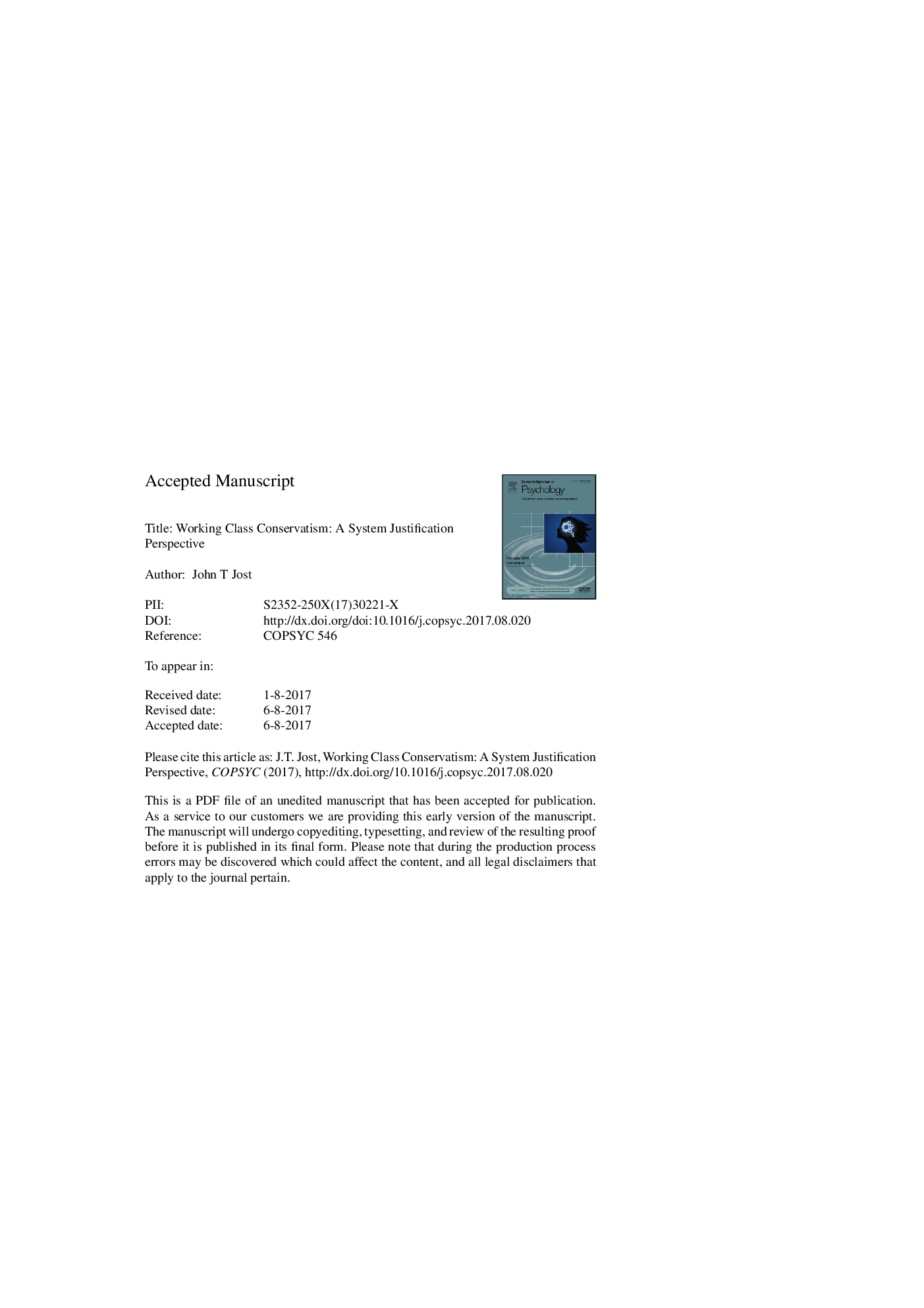| Article ID | Journal | Published Year | Pages | File Type |
|---|---|---|---|---|
| 5033521 | Current Opinion in Psychology | 2017 | 22 Pages |
Abstract
Working class conservatism is a perennial issue in social science, but researchers have struggled to provide an adequate characterization. In social psychology, the question has too often been framed in 'either/or' terms of whether the disadvantaged are more or less likely to support the status quo than the advantaged. This is a crude rendering of the issue obscuring the fact that even if most working class voters are not conservative, millions are - and conservatives could not win elections without their support. System justification theory highlights epistemic, existential, and relational needs to reduce uncertainty, threat, and social discord that are shared by everyone - and that promote conservative attitudes. I summarize qualitative and quantitative evidence of system justification among the disadvantaged and consider prospects for more constructive political activity.
Related Topics
Social Sciences and Humanities
Psychology
Applied Psychology
Authors
John T Jost,
